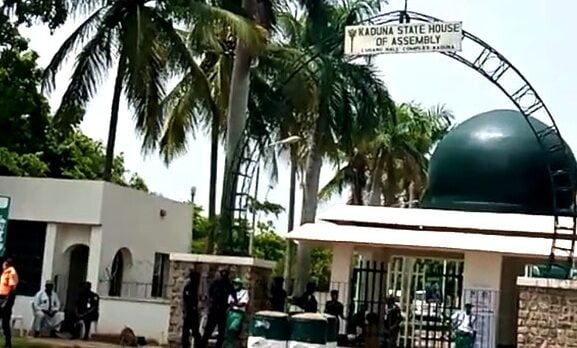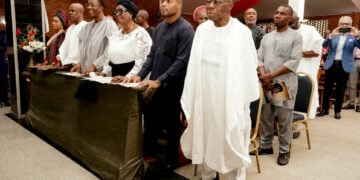Kaduna State House of Assembly (KDSHA) has passed a bill to establish the Tertiary Institutions Regulatory Agency and Other Related Matters 2025.
The bill was passed during plenary on Tuesday, presided over by the speaker, Hon. Yusuf Dahiru Liman.
The chairman of the House Committee on Education and deputy chief whip, Hon. Muhammad Lawal Ismail, told newsmen after the session that the bill would strengthen the oversight of tertiary institutions, both public and private.
He said the new agency would monitor records, regulate operations and serve as a “data bank” for student enrolment, programmes and institutional compliance with state regulations.
“Before now, there was no agency that looked into the relationship between teachers and students, or ensured institutions adhered to state rules and labour regulations,” he said.
Ismail noted that, unlike the National Universities Commission (NUC), which focuses on academic standards and national compliance, the Kaduna agency would ensure that institutions align with state-specific requirements.
“When signed into law, the agency will also regulate colleges of education, including private ones, their fees, environment and overall activities. We believe His Excellency will assent to this for the betterment of our people because Kaduna is leading in terms of education,” he added.
In another development, the KSHA also adopted a motion calling for the regulation of metal waste vendors operating across the state to promote environmental sustainability, protect public health, and enforce compliance with existing waste management standards.
The motion, moved by the member representing Doka/Gabasawa Constituency, Aminu Lawal, received unanimous support from the lawmakers, who described the unregulated activities of scrap metal dealers as a growing threat to urban sanitation, environmental safety and community well-being.
Speaking to Assembly correspondents after the plenary, Lawal expressed worry that the vendors’ activities have led to theft of public infrastructure and people’s property, posing serious safety risks and costing the government millions of naira in repairs.





